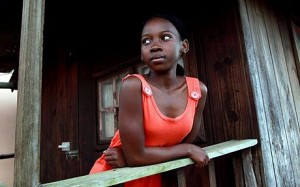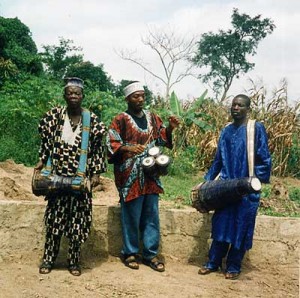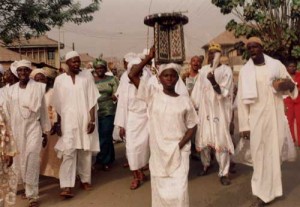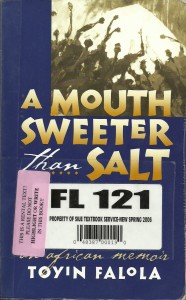Here is the text of an open letter released by Nigerian Writers in reaction to the current political situation in Nigeria. Over thirty writers have currently signed up to the letter which has this morning been released to the media. It calls on concerned Nigerians to add their signature, and support, in a comment box beneath. You can also listen to and download an audio version by clicking on this link: audio. I support this because I think it represent some of the best aspirations of all Nigerians in pursuit of happiness, good health, success, and aspiration for country worthy of its name and one that lives up to its potentials. I like the introductory paragraph, especially.
An Open Letter from Nigerian Writers
Nigeria’s failure to make the progress commensurate with 50 years of nation-building is not just a failure of leadership. It is first and most catastrophically, a failure of followership.
As ordinary Nigerians, we have failed to create an environment where good leadership can thrive. By glamorising fraud and ineptitude, we have created a country hostile to probity. Our expectation from Government House is mediocrity, so that good government surprises us pleasantly and excellence continues to amaze us. Instead of an environment of accountability, we have fostered sycophancy. We have been content to follow every stripe of leader, from the thief to the buffoon. The consequence is that for months we have been happy to be ruled even in absentia.
Today, we say, no more.
Protest is not a dirty word. Even babies have a voice, long before they learn language or discernment. The child that is too docile to cry when it hungers or ails might die in the hands of the most benevolent mother. A leadership, however benevolent, requires an intelligent, demanding, and courageous followership to excel.
It is the responsibility of every Nigerian to voice the legitimate expectations of nation and to establish the standards to which our leaders must be held. We must expect great things from this country, so we must look for the leaders who can deliver. There is an acceptable standard of leadership, and then there is an unacceptable standard. We must honour leaders who excel, and censure leaders – at every level, and in every arm of government – who betray our trust.
If failure is not censured, there is no incentive in pursuing excellence. If sacrificial leadership is not recognised, then leaders of merit will not come forward, and the heroes in our cenotaphs will be the very architects of our failure as a nation. Although we are justly famous for our generosity of spirit, for our ability to forgive and forget the gravest transgressions, Nigerians must also now boldly condemn the errors of leadership, and end the complacency that has brought us so low as a country. The only reason for the existence of political leaders is to offer service to nation. Leadership is not an end in itself. It is a privilege to serve your country; leadership is not a right to be served by your country.
Today, Nigeria stands on a precipice. Behind us is a history that can push us, irrevocably, over the brink. Yet, we are writers. If we bring anything collectively to society, it must be the imagination and the inspiration to bridge impossible gulfs. Today, we must plumb our history, not to evoke despair, but to inspire resolve. Today, we call on Nigerians to hold hands across the trenches of our deep divisions and, somehow, find the resolution to dream again. Let us, as ordinary Nigerians, reject the ethnic fictions that local despots have used to colonise this country over the past five decades.
Let us dream a simple dream made fantastic by our present circumstances. Let us dream of a Nigeria that works, that evokes pride, and that inspires faith. Let us dream of a Nigeria of servant-leaders and sacrificial statesmen, a Nigeria which calls the best characteristics out of ordinary men and women. Let us call on that capacity for renewal to bring opportunity out of this crisis.
Let us recreate the excitement – and the possibilities – with which we approached the Independence Day of 1960. In 50 years, the resources and destiny of this great country have been hijacked by private carpetbaggers and adventurers. Let us take back the sanctity of our polls. Let us rejuvenate the recall process. Let us police our resources, our leadership. We must liberate Nigeria anew. Today, we must take back our country.
As writers, the past and the future are fertile fields for the work of our imagination. Today, in this love-letter to our nation, we call on all Nigerians to take authorship of our nation’s next 50 years. Our destiny is in our own hands. Shall we write into it a bigger civil war? Another half-century of mediocrity and international disgrace? Then we need do nothing.
But if we, the people of Nigeria, must write an inspirational epic of a humbled nation on her knees, who, breaking free of bondage, soars into the keep of eagles, we must begin by demanding only the best of our leaders. In the days and months to come, we the people must find our voice, our votes, and our true values. And we must make them count.
Thank you.
(Culled from African-writing.com)
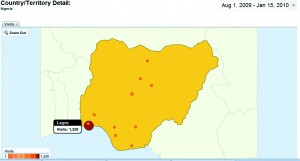 Today, forty-four years ago in Nigeria, a few army majors took steps towards what they felt was the right direction in righting the wrongs of a new nation. It was the first major step towards our division, and the many other troubles of the nation. On this anniversary of that extraordinary event in the life of my country, after a civil war, several military coups, and amidst the many effort in pursuit of a lasting solution to the many problems as a nation, let us remember the sacrifices of these men, and the very best of their aspirations.
Today, forty-four years ago in Nigeria, a few army majors took steps towards what they felt was the right direction in righting the wrongs of a new nation. It was the first major step towards our division, and the many other troubles of the nation. On this anniversary of that extraordinary event in the life of my country, after a civil war, several military coups, and amidst the many effort in pursuit of a lasting solution to the many problems as a nation, let us remember the sacrifices of these men, and the very best of their aspirations.